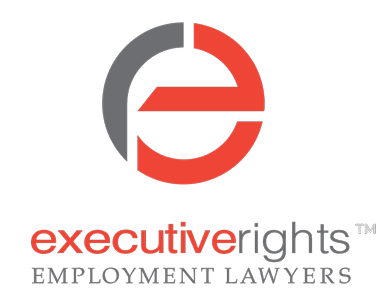Do I have to tell my employer if I have done something wrong?
Self-Reporting?
In the absence of any contractual or statutory obligation, an employee is not under any general duty to volunteer information in relation to their own misdeeds.
As was stated by Stephenson LJ in Sybron Corporation v Rochem Ltd [1984] CH 112:
“[A] contract of employment, though often described as creating a relationship of trust between master and servant, is not a contract uberrimae fidei (of utmost good faith) so as to require disclosure by the servant of his own misconduct, either before… employment… or during the course of… employment.”
This does not mean that, if during the course of the recruitment process, a prospective employee dishonestly answers a recruiter’s questions, this could not lead to subsequent dismissal if later discovered.
For a more senior employee, particularly at the “C Suite”/Director level, the picture becomes more complex, as such a person is described as a “fiduciary” i.e. has an obligation to act in the interests of the company as a whole. There is caselaw suggesting that senior employees have a duty to self-report and failure to do so might amount to misleading or deceptive conduct. Senior executives will usually have clauses in their contracts of employment requiring them to act in the best interests of the company and/or to disclose conflicts of interest that may cause harm to the employer in future.
There is case law which also suggests that executive (fiduciary) duties relate only to negative duties and not positive duties i.e. that fiduciary duties are proscriptive rather than prescriptive.
A negative duty is an obligation to refrain from some conduct that is either illegal or a breach of the contract of employment – such as obtaining your employer’s property by deception – while a positive duty would require an executive to do some act for the benefit of the employer. Disclosing one’s own past or present misdeeds might be described as a positive duty – with no obligation to disclose unless there is a contractual/statutory obligation.
The truth is that the scope of the executive’s duty to report their own misdeeds is not clear and needs to be assessed on a case-by-case basis.
Is the duty that one is said to be in breach of positive or negative? What was the context in which the misconduct occurred? Was it calculated or inadvertent? What do the documentary records reveal as to your involvement in the matter? What were your motives in taking the decision/s you did? Did your employer suffer loss or damage – whether financial or reputational? If any loss was sustained, was that subsequently made up? Did you make any effort to communicate what was happening? Could it be said that the employer knew about it and simply condoned what occurred? This list of questions is not intended to be exhaustive.
How then do you respond to questions about your own conduct?
Dishonest response to questions and failing to answer questions
As an executive, you may not necessarily have a positive duty to volunteer information in relation to your own misdeeds – although that would need to be considered. Nevertheless, there is the further consideration of what happens if you are specifically asked questions about what has occurred and provide a dishonest response?
In Associated Dominions Assurance Society v Andrews (1949) 49 SR (NSW) 351, the Court stated that a duty lies upon the employee to give information to the employer that is:
“…within the scope of his employment and which relates to the mutual interests of employer and employee. If an employee is required at the proper time and in reasonable manner to state to his employer facts concerning the employee’s own actions performed as an employee… (then the employee) is bound to make such disclosure…. Questions asked relating to the employee’s activities could be so reasonable and fair that to refuse the information may well be disobedience justifying dismissal.”
If the answer to the questions that are put to you might involve exposure to criminal prosecution – including ASIC civil penalties or other disciplinary consequences – then you might need to rely on the privilege against self-incrimination. In those circumstances, it would be better to remain silent until you have taken legal advice.
Thomson v John Holland Group Pty Ltd [2012] FWA 10363 is an example of what can happen when an employee refuses to answer a question that is relevant to their own conduct and to their employer’s workplace investigation.
In that case, Mr. Thomson had recorded – using his phone – a telephone discussion with his managers without their consent. He then subsequently played a part of that discussion back to his manager. An investigation was instigated and Mr. Thomson refused to confirm whether he had recorded the discussion. He was dismissed and commenced proceedings in the Fair Work Commission.
The Commission held that Mr. Thomson’s conduct was unlawful and a breach of the Surveillance Devices Act 1998 (Western Australia). As Mr. Thompson had failed to be open, honest and cooperative regarding the recording, the termination of his employment was held not to be unreasonable.
Executives are not normally able to access the unfair dismissal provisions of the Fair Work Act 2009. Nevertheless, a refusal by an Executive to answer questions in similar circumstances might well result in a summary dismissal. If that is the outcome, then you would receive no notice payment and suffer both financial loss and adverse reputational consequences.
Reporting misdeeds of others?
What happens if a staff member engages in conduct that amounts to misconduct and it comes to your attention? That may either be somebody to whom you report or somebody who reports to you.
The situation becomes even more difficult if the employee in question has an otherwise exemplary employment record and many years of faithful service.
It is true that, in lower levels in the hierarchy, there is no general duty to report the misconduct of another staff member. However, for those at the managerial level, the duty to report could be considered an inherent requirement of the position that they have agreed to discharge.
To remain silent when you know that misconduct has occurred may itself amount to a breach of your own express duties under your Contract of Employment. There is also the risk that you might be considered to be complicit in what has occurred.
For a senior executive to remain silent in the face of clear evidence of wrongdoing could put you at risk of summary dismissal.
Conclusion
As an executive in the company, you need to be constantly vigilant as to your own behaviour realising that – as a fiduciary – you are going to be judged by a very high standard. As the maxim goes, “those to whom much is given, much is expected”.
Once you have committed an act of misconduct – particularly of a negative duty – that will inevitably set in train a sequence of events that you may not be able to call back or salvage. Before you get to the point of committing the act or making the decision, you need to “hit the pause button”. Carefully consider how the decision in question is likely to be subsequently viewed. If you have any doubt as to the ethical path that you are about to take, then avoid taking it and seek early legal advice.
By following this approach, you are less likely to place yourself in a situation of having to face questions and not knowing how to respond.
If you are in the situation where the decision has already been taken, then you need to realise that the longer it is left undisclosed to the employer, the worse the situation can become. If the decision that has been taken involves some financial irregularity, then sooner or later, it is likely to be picked up by an auditor or an accountant. It is better if the problem is revealed to the employer by you rather than being summoned to a meeting to provide a “please explain” followed by an abrupt termination.
The case law suggests that misconduct of a financial nature does not necessarily need to be monetarily significant to justify summary dismissal. For any executive, termination based on summary dismissal can end what might otherwise have been a promising career.
You need to accept that, if that this is the situation you are in, then it is highly likely that it will result in the end of your employment with the company – unless you can come up with some strong mitigating circumstances.
Similarly, “covering up” for another staff member or at least “turning a blind eye” also leaves you very exposed, and indeed even complicit, in what has occurred.
The advantage of going on the front foot and “fessing up” is that you are in a better position to control the “exit narrative” of why you have left the company. In that event, the mistake of judgement that you have made is not going to follow you around for the rest of your career and you have the opportunity of starting again.
The information you obtain at this site is not, nor is it intended to be, legal advice. You should consult a lawyer for individual advice regarding your own situation.


